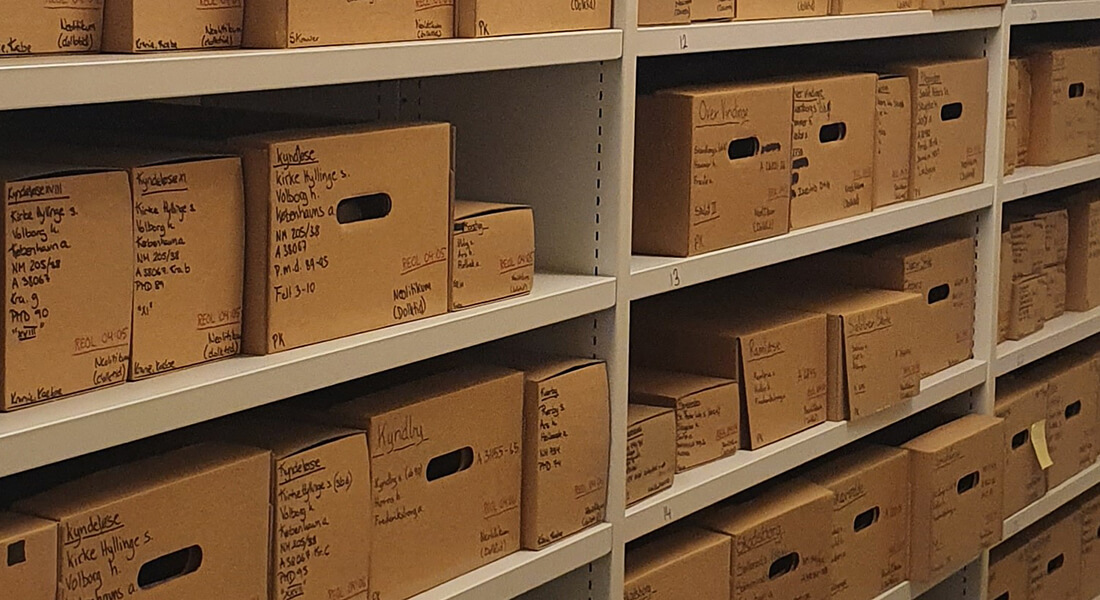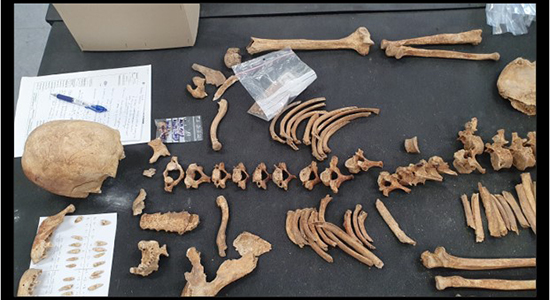The Anthropological Collection

The Anthropological Collection at the Laboratory of Biological Anthropology contains approx. 30,000 skeletons and represent over 10,000 years of human tissue from the Paleolithic to the mid-1800s. The majority of the collection contains archaeological skeletal material from excavations in Denmark, but there is also skeletal material from Greenland (including the Greenlandic mummies), the Faroe Islands, from the Scandinavian Joint Archaeological UNESCO Expedition to Egypt (Nubia) and a small number of items from the rest of the world.
The collection is unique worldwide and an invaluable resource. Its uniqueness globally is partly due its scope, and partly to the thoroughness of its archaeological documentation. It is an essential and important reference source for use in research, teaching and comparative studies. The collection forms the basis for comparative studies and development of new research methods within e.g. DNA, proteomics, peptite and isotope analyses.
The Laboratory of Biological Anthropology curates the Anthropological Collection on behalf of the Danish local museums and the National Museum. The Laboratory of Biological Anthropology also has an agreement with the Greenland National Museum. Ownership of the collection is thus the excavating museum/institution. A small proportion of anatomical specimens from the former Normal Anatomisk Institut as well as material submitted to the Laboratory of Biological Anthropology by private collectors is owned by the University of Copenhagen.
The Anthropological collection
The collection is open to researchers and employees at archaeological, museum and research institutions. You must make an appointment. Fill out Application for access to Anthropological Collection form.
We welcome collaborative research.
Please note that research involving destructive analyses requires special permission.
Research involving analysis of the Greenland material requires additional approval from the Greenland National Museum and Archive. Please contact Marie Louise Jørkov.
For more information regarding the collection and access please contact: Marie Louise Jørkov.

